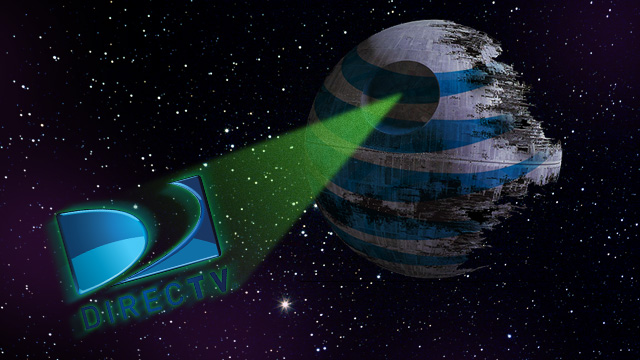
AT&T is disputing the Federal Communications Commission's allegation that it may be violating net neutrality rules by exempting DirecTV from wireless Internet data caps.
AT&T purchased DirecTV in July 2015 and in September of this year started exempting DirecTV's online streaming from the data caps. When other companies want to bypass data caps imposed on AT&T customers, they have to pay AT&T directly for an exemption.
The FCC has mostly allowed such zero-rating schemes to proceed, but this month the commission's wireless telecommunications bureau told AT&T that it may be violating net neutrality rules and asked the carrier to respond to the concerns. AT&T argued yesterday in a letter to the FCC and an attached legal analysis that the data cap exemption benefits consumers and is not a violation.
The data cap exemption and an upcoming streaming service called DirecTV Now "are precisely the kind of pro-consumer challenges to cable that the Commission heralded in approving AT&T's acquisition of DirecTV," AT&T wrote. "DirecTV’s sponsorship of that content through Data Free TV allows DirecTV to better compete against the cable incumbents by ensuring that its subscribers receive the mobile video experience they increasingly demand in the most consumer-friendly manner possible."
No one would allege a net neutrality violation if DirecTV "reimbursed its customers for the extra increments of data they buy from the ISP to stream the provider’s content," AT&T also argued. "It should make no policy difference if, instead, the edge provider pays the ISP directly for the same increments of data, particularly if (as here) it pays a lower wholesale rate than retail consumers would pay per unit of actual consumption and passes along much of the savings to those consumers. From a consumer’s perspective, either arrangement is simply a bundled discount."
AT&T also addressed the FCC's argument that the data cap exemptions put competitors at a disadvantage. While DirecTV technically pays AT&T for the privilege of bypassing data caps, the cost to DirecTV is equal to AT&T's revenue from selling data cap exemptions, making it a wash, the FCC says. Meanwhile, the FCC argued that the rates AT&T charges other companies for data cap exemptions make it financially infeasible to compete against DirecTV Now, which will include more than 100 channels for $35 a month.
The amount AT&T charges other companies for data cap exemptions hasn't been made public. AT&T charges the same rate regardless of how much data is "sponsored," without offering any volume discounts. But AT&T said the price for data cap exemptions is "as low as the competitive wholesale rates that major wireless resellers pay AT&T for network capacity today when they commit to large purchase volumes."
FCC inaction
It's unclear whether AT&T is actually violating net neutrality rules, because the FCC's rules don't specifically ban any form of data cap exemptions. Instead, the FCC reserves the right to decide whether particular implementations of data cap exemptions are harmful to consumers or competitors. And with the FCC about to shift from the control of Democrats to Republicans, who generally opposed the net neutrality rules, the commission might simply drop the matter.
AT&T said the FCC's wireless telecommunications bureau is exceeding its "delegated authority" by making allegations about matters that "cannot be resolved under outstanding Commission precedents and guidelines.” AT&T also disputed the bureau's contention that there is no "true cash cost" to AT&T when it zero-rates DirecTV video. To the contrary, AT&T said it will have to upgrade its network to accommodate the increased usage from DirecTV users.
AT&T made one point that even net neutrality advocates would likely agree on—that the FCC has allowed sponsored data offerings to proliferate without issuing any clear guidelines. The FCC called ISPs in for meetings on their zero-rating practices nearly a year ago but took no public action until sending its letter to AT&T this month.
"Finally, despite a mountain of filings on the issue, the Commission has issued no guidance on sponsored-data practices in the nearly two years since it released the Open Internet Order, even though, in the meantime, those practices have become an integral part of the competitive telecommunications landscape," AT&T wrote. "The Bureau would act in flagrant disregard for the limits on its delegated authority if it now got out in front of the Commission, isolated one company’s sponsored-data practices for condemnation, and left intact the similar sponsored-data practices of that company’s chief competitors, including market leaders such as Verizon and Comcast."
reader comments
38